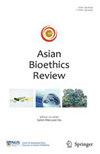Virtue Ethics among Physicians who serve Individuals with Chronic Spinal Cord Injury in Indonesia
Abstract
Abstract
Individuals with chronic spinal cord injury (CSCI) require complex and lengthy health services based on ethical philosophy. The virtue character that is most relevant to the egalitarian concept is fairness. The aim of the study is whether the character of fairness becomes the character of a doctor serving individuals with CSCI. It is a mixed method cross-sectional explanatory study, with questionnaires sent to doctors and individuals with CSCI, interviews with doctors, and healthcare system field observation. Sixty-two doctors and 33 patients with CSCI participated in the study. The virtues most frequently chosen by doctors were love, gratitude, spirituality, zest, fairness, and kindness. The CSCI patients’ views regarding doctors’ characters were a postponement of personal interest, compassion, and loyalty to trust. All interviewed doctors indicated that they supported more than five of the 24 virtues. Doctors serve with ethical principles of virtue, even though the rewards received are inadequate. In fact, the use of health services by CSCI is still limited. Virtue ethics, especially the character of fairness, is necessary as a base of positive relationships between doctors and patients, to achieve equality of benefits for CSCI patients. Data obtained that the doctors’ character of fairness is still not the main choice.

 求助内容:
求助内容: 应助结果提醒方式:
应助结果提醒方式:


